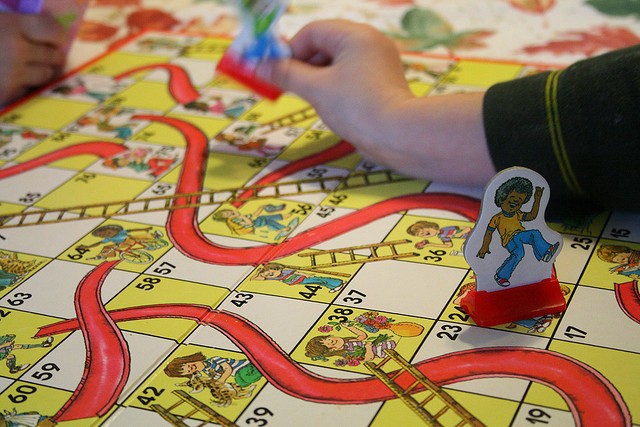When You Just Can’t Get Started With Financial Stability

There’s a new story out from The Atlantic stating that “nearly three-in-10 young people who define themselves as just starting out cited paying off student loans as their biggest financial challenge.” No surprise there, right? (Perhaps the biggest shock is that less than 30 percent of the surveyed group cited student loans as their most significant financial challenge.)
But let’s go back to that idea of “just starting out.” This is a specific phrase used by the National Journal and Heartland Monitor, the two organizations (along with Allstate) behind the survey that The Atlantic references. In fact, the Heartland Monitor presents the survey results under the headline “Getting Started.”
What does “just starting out” mean? To quote the National Journal:
Consistently, both younger and older respondents said that adults could put the “starting out” stage of life behind them only after they had crossed major thresholds, not just taken the first steps toward independence.
Then, the National Journal lists the thresholds, which include:
— “A job that is part of a long-term career”
— “No longer living paycheck to paycheck”
— “Disposable income and a long-term savings plan”
— “Financial independence from parents”
It’s important to note that these responses came from the survey respondents, and although they also suggested other thresholds such as marriage and homeownership, these Big Four responses were consistently cited as “the top indications of advancing past the starting-out stage of life.”
So what if you don’t achieve those thresholds? Does that mean you’re starting out forever? Stuck in some kind of pre-adulthood?
And what if these so-called “thresholds” feel more like chutes and ladders? I’ve had disposable income and a long-term savings plan, and then something about my life shifts and I start spending down my savings. Does that mean I’ve never really gotten started in life? Does having to start over wipe out your adulthood credentials?
There’s also a sort of Matthew Effect to all of this: to those who have started out financially, more shall be given, whether it’s enough money to put in an IRA (with the corresponding tax deduction), or the ability to save $5,000 a year now and retire a millionaire (instead of having to save $10,000 a year if you start after age 35), or simply the ability to buy a decent pair of boots instead of slogging along in cheap shoes.
Of course, the truth is — as we know without my having to say it — that going from “getting started” to “started” makes life better. I was going to say “easier,” and then I thought of my 50-hour writing workweeks, and switched to what I really meant. Better. It feels good to look at my savings accounts and see money in them. It feels good to know that I have about as much job security as a freelancer can have. It feels good to be able to make plans for the future from a stable base.
And the truth is that my life is less good in the areas where I haven’t yet “started.” The handful of long-term relationships that have all ended, for example, sending me back down the chute to the beginning of the game and the nights spent trawling OKCupid.
In five years you could have three one-year relationships, or you could have something that’s “started:” a partnership, a marriage, a family, whatever you want that life to look like. In five years you could have three one-year jobs, or you could have a career and disposable income and savings.
And maybe these differences don’t make you any more or less adult, but I wonder if they do in fact make life better.
I’ll leave you with a link to the song I’ve been humming since the beginning of the post, as performed by Ella Fitzgerald:
I’ve been around the world in a plane
I’ve settled revolutions in Spain
The North Pole I have charted
But I can’t get started with financial stability.
Or something like that.
Photo credit: Ben Husmann
Support The Billfold
The Billfold continues to exist thanks to support from our readers. Help us continue to do our work by making a monthly pledge on Patreon or a one-time-only contribution through PayPal.
Comments